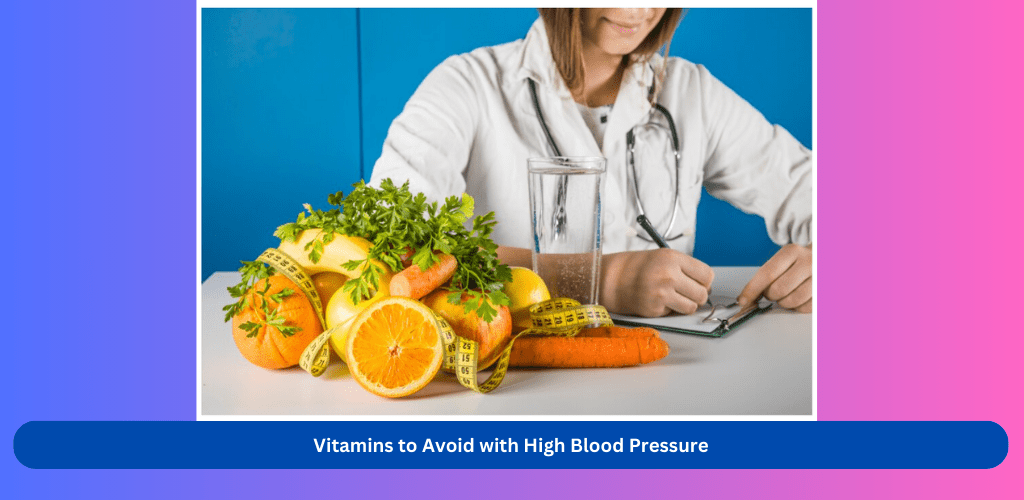Navigating the world of vitamins and supplements can be tricky, especially when managing high blood pressure. While many vitamins to avoid with high blood pressure, some can negatively impact blood pressure levels, exacerbating hypertension.
The Connection Between Vitamins and High Blood Pressure
What is High Blood Pressure?
High blood pressure, or hypertension, is a condition where the force of the blood against the artery walls is too high. Over time, this can lead to serious health problems like heart disease, stroke, and kidney failure. Managing high blood pressure often involves lifestyle changes, including diet, exercise, and medication. However, the role of vitamins and supplements is sometimes overlooked.
How Vitamins Can Affect Blood Pressure
Vitamins are essential nutrients that support various bodily functions. However, not all vitamins are beneficial for everyone, especially those with hypertension. Some vitamins can increase blood pressure or interact with medications, making it crucial to understand which ones to avoid.
Vitamins to Avoid with High Blood Pressure
1. Vitamin E
The Impact of Vitamin E on Blood Pressure
Vitamin E is known for its antioxidant properties and benefits to skin health. However, high doses of Vitamin E can interfere with blood pressure regulation and may lead to an increased risk of hemorrhagic stroke. Individuals with high blood pressure need to monitor their intake and consult a healthcare provider before supplementing with Vitamin E.
2. Vitamin D
Balancing Benefits and Risks
Vitamin D is vital for bone health and immune function. While it’s generally safe, excessive intake can lead to elevated calcium levels in the blood, which can increase blood pressure. People with hypertension should aim for the recommended daily allowance and avoid high-dose supplements unless prescribed by a doctor.
3. Vitamin A
Potential for Toxicity
Vitamin A supports vision and immune health, but in large amounts, it can be toxic and cause a variety of health issues, including increased blood pressure. It’s important to avoid high-dose Vitamin A supplements and obtain this nutrient primarily through diet.
4. Licorice Root (Glycyrrhizin)
An Uncommon but Relevant Concern
While not a vitamin, licorice root is a common herbal supplement that can cause significant spikes in blood pressure due to its active component, glycyrrhizin. Those with high blood pressure should avoid licorice root supplements and be cautious with foods containing licorice.
Conclusion
Managing high anxiety and high blood pressure requires a comprehensive approach, including careful consideration of vitamin and supplement intake. While vitamins are essential for overall health, certain ones can pose risks for those with hypertension. Always consult a healthcare provider before adding new supplements to your regimen to ensure they are safe and beneficial for your specific health needs.

